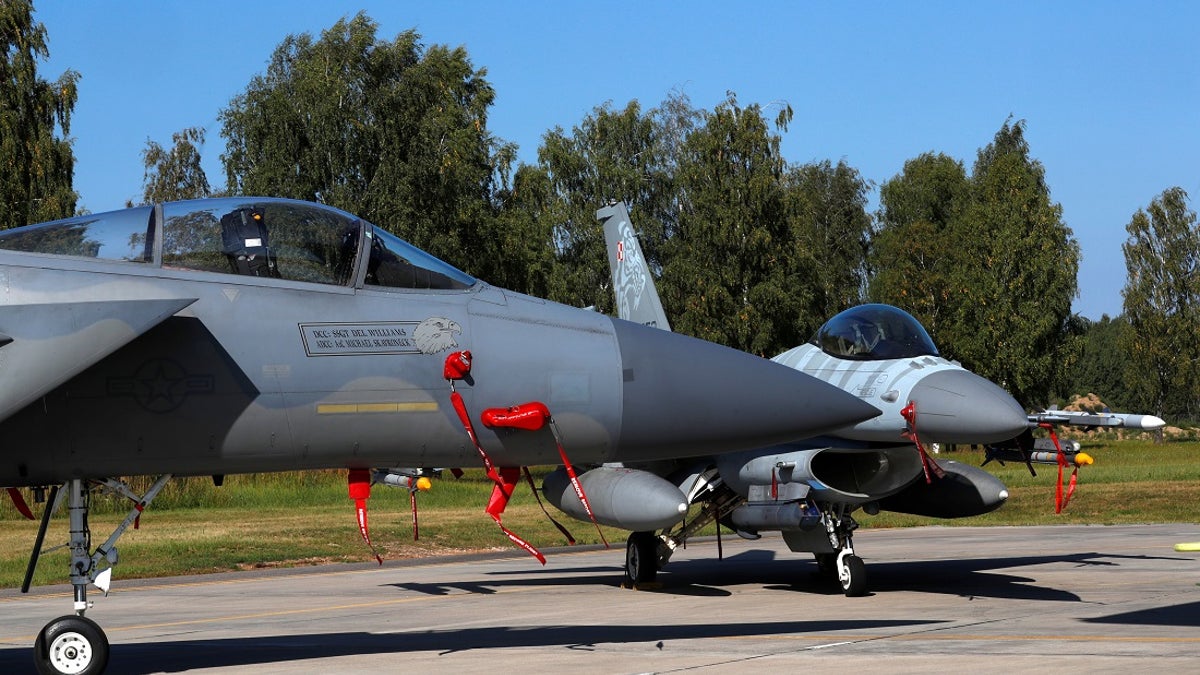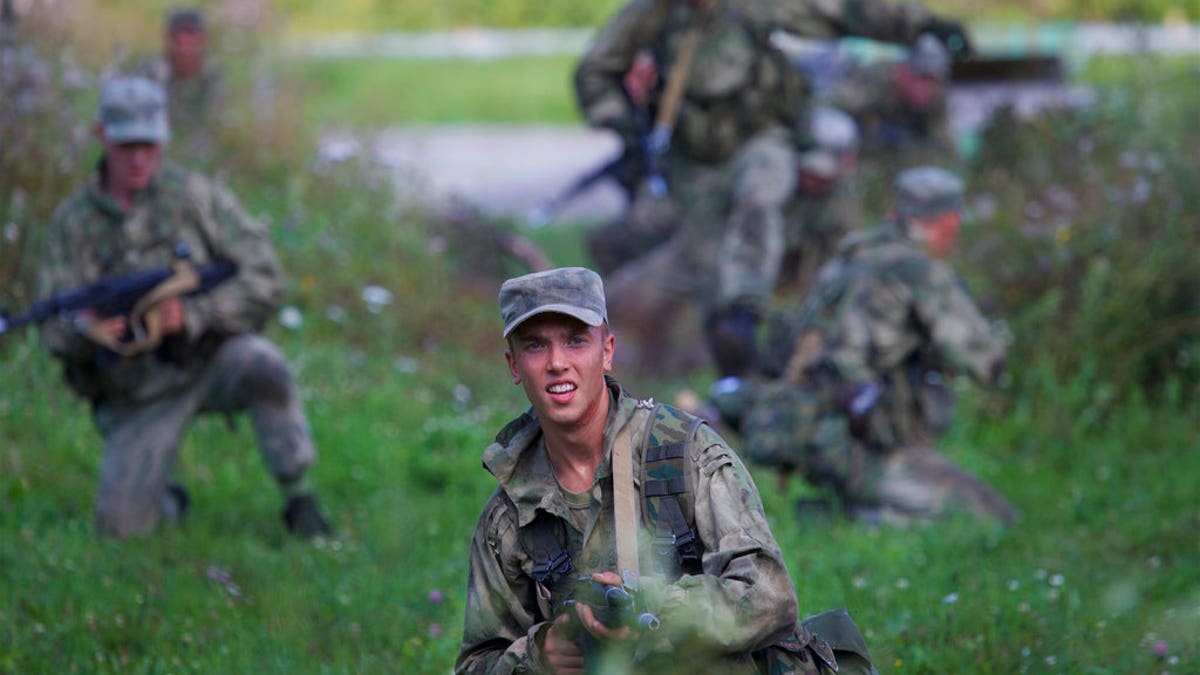
U.S. Air Force F-15C Eagle fighter and Polish Air Force F-16 fighter are seen during a NATO Baltic air policing mission in Lithuania. (Reuters)
The United States sent extra fighter planes to guard the Baltic skies as Russia and Belarus prepare to conduct military exercises next month, joining three other NATO monitors to observe the war games -- despite Russian officials insisting the exercises pose no threat.
Seven U.S. F-15 fighters arrived in Siauliai airfield in Lithuania this week, three more planes than the usual amount sent, Reuters reported Wednesday. The aircrafts will guard the skies over NATO members Lithuania, Latvia and Estonia -- none of whom have fighter jets -- as Russia gears up for the Zapad war games.
The military exercises are expected to occur between Sept. 14 and 20 in Belarus, western Russia and Russia' enclave of Kaliningrad, with fewer than 13,000 troops participating in it.
Tod Wolters, the top U.S. Air Force commander in Europe, said the increase in fighter aircrafts is a response to "training opportunities" in Lithuania.
"The air policing mission will remain as it has been. And the purpose of the air policing mission is to protect the sovereign skies of the three Baltic nations," Wolters said.

The Russian military says major war games set for next month will not threaten anyone. (AP)
NATO announced on Wednesday it will also send three experts to observe the Zapad games, but alliance Secretary-General Jens Stoltenberg said he wants rules to be changed to allow broader monitoring.
"It's especially important now, because tensions are higher than they used to be. There is more military activity, more exercises and therefore it's even more important that we avoid incidents and accidents or misunderstandings," he told The Associated Press on Friday, in Orzysz, Poland.
NATO members are concerned the Russian military will leave soldiers in Belarus after the exercises are over, allowing Putin to send troops quickly across the border if he plans to invade. The Russian president deployed the same tactic in 2008 with Georgia and 2014 with Ukraine.
Russia's Deputy Defense Minister, Lt. Gen. Alexander Fomin rejected "myths about the so-called Russian threat."
A continuous rotation of about 4,000 U.S. troops are being stationed in Eastern Europe and relearning Cold War-era fighting tactics to keep the Russian aggression in the region in check, Fox News reported earlier this month. The additional troop rotations were first announced in March 2016.
The Associated Press contributed to this report.




















